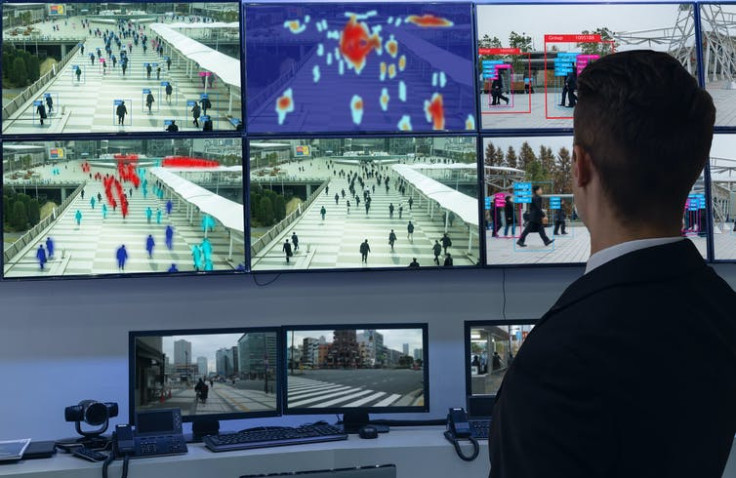Technology and the transformation of the workplace: how will this change the way we work?
The workplace environment is changing and technology will have a major impact on the way we wrok in the coming decades.

Digital technologies such as Artificial Intelligence (AI), the Internet of Things (IoT), and cloud computing are transforming the world of work and traditional jobs. Companies need to ensure they too evolve and keep pace with these new trends in a labour market that increasingly relies on digital skills.
Technology has already had a significant impact on the modern workplace, and this trend is only set to continue in the coming years. Competition for talent remains fierce, with many of the in-demand digital skills required for the workplace of the future also in short supply. By 2030, we can expect to see a number of changes in how we work as a result of advances in technology.
These technological advancements are changing the way we work and the types of jobs available in the future. Some jobs may be eliminated by automation, while others will be enhanced by the use of AI and machine learning to increase productivity and decision-making capabilities.
A new report from the Randstad and the Organisation for Economic Co-operation and Development (OECD) analyzes more than 400 million job postings published online in the last 10 years and highlights the labour market occupations and skills most in demand.
The authors of the report note that there has been a significant increase in job postings for digital roles in the US, with a 24% rise between 2018 and 2021. This growth is led by a 116% increase in demand for data engineers. The shift towards a digital workplace presents both opportunities and challenges for employers and employees. Companies will compete fiercely to attract and retain top talent, and therefore it will be crucial for them to stay informed about labor market trends related to digital technology and skills.
Governments and regulators, on the other hand, must invest in developing the digital skills of the workforce to prepare them for future labor markets. This includes identifying the most important skills and the jobs that require them, as well as adapting education systems to ensure a digital-ready workforce is produced by schools, colleges, and universities.
As the world becomes increasingly digitised, technology is playing an ever-greater role in the workplace. In the next decade, we can expect to see a number of ways in which technology will benefit employers.
One of the most notable changes will be the increased use of automation and AI. These technologies will automate many routine tasks, freeing up employees to focus on more complex and creative tasks. For example, it is not far-fetched to believe that AI-powered virtual assistants will be able to handle scheduling and emails, while robots and drones may be used for tasks such as inventory management and delivery. Technology will also help employers to improve their customer service and communication. With the use of chatbots and other AI-powered tools, customers will be able to get quick and accurate responses to their queries, and this will help to improve customer loyalty and retention.
With high-speed internet and collaboration tools, employees are able to work from remotely anywhere, at any time. This will allow employers to tap into a global talent pool and will also give employees more flexibility and control over their work-life balance.
In addition to these benefits, technology will also play an important role in promoting employee well-being and mental health. Wearables and other tracking devices will allow employers to monitor the health and stress levels of their employees in real-time, and this data can be used to make adjustments to the workplace environment and improve employee productivity and satisfaction.
Researcher Kentaro Toyama, a professor at the University of Michigan says that while most people believe they are special, science and technology have repeatedly proved this conviction wrong. Technology has been steadily disproving the notion that certain cognitive tasks can only be performed by humans. The first adding machine was invented in 1623, and in recent years, computer-generated works have even won art competitions. Toyama believes that the singularity, the point at which computers surpass human intelligence, is imminent.
Many industries will become a blend of human and computer work, with some individuals filling specialized roles, but the majority of the work being done by machines. For example, in manufacturing, robots are already handling a significant amount of tasks, but human operators still oversee the machines.
In Toyama's view, based on past trends, it is likely that advancements in AI will lead to more job loss and a decrease in the number of people with human-only skills. However, those who possess these skills may see an increase in wealth, and those who own the technology will become incredibly wealthy.
Randstad, a Netherlands-based company specializing in recruitment and HR solutions, published its annual Workmonitor report - one of the longest-running and largest studies of its kind, asking the views of over 30,000 employees in more than 30 markets across Europe, Asia Pacific and the Americas.
The company monitors the preferences and expectations of employees from their employers, as well as their willingness to voice them. Over the past 20 years, we have witnessed the aftermath of the global financial crisis, the decline of traditional cubicle-based working environments in favor of open-plan offices, and the emergence of a mobile, always-connected workforce enabled by technology such as laptops and smartphones. The effects of these changes in the workplace and broader economic challenges on work patterns are becoming increasingly evident.
This year's findings show that workers want a lot more from their employers – secure, flexible, inclusive and financially stable employment in a place they feel they belong. The onus is on employers to meet these expectations if they wish to attract and retain the best talent amid ongoing shortages.

As we go into 2023, financial turmoil has added a new dimension to work priorities and expectations. There has been no letup in the desire for values-driven flexible employers, but workers are also seeking stability and security. Due to economic uncertainty, more than one-third of workers are concerned about losing their jobs and almost two-thirds stated that they would not take a job that does not offer security.
Several studies have been conducted on the impact of advancing technologies on the workplace. Some key findings include:
- Automation and Artificial Intelligence (AI) are expected to significantly impact the job market. A study by McKinsey Global Institute found that 800 million jobs could be displaced by automation by 2030, but 375 million new jobs could be created.
- Automation and AI are expected to lead to a shift in the skills required for certain jobs. A study by the World Economic Forum found that by 2022, the top skills required for jobs were complex problem-solving, critical thinking, creativity, and people management.
- The use of automation and AI in the workplace can lead to increased productivity and efficiency. A study by Accenture found that the use of automation and AI in the workplace can lead to a potential increase in productivity of up to 40%.
- The use of automation and AI in the workplace can lead to job displacement, particularly for low-skilled workers. A separate study by the OECD found that low-skilled workers are more likely to be displaced by automation and AI than high-skilled workers.
- The use of automation and AI in the workplace can lead to a reduction in costs. A study by PwC found that the use of automation and AI in the workplace can lead to a potential reduction in costs of up to 30%.
It is clear that technology will continue to play an important role in the workplace in the next decade. With the help of automation and remote working, employers will be able to be more efficient and productive. It is also likely that technology will also help to promote employee well-being and mental health, improve customer service and communication, and give employees more flexibility and control over their work-life balance.
Overall, these studies suggest that while automation and AI have the potential to bring significant benefits to the workplace, such as increased productivity and efficiency, they also have the potential to disrupt the job market and displace certain types of jobs and workers. Moving forward, it will be necessary to strike a balance between developing technology and the human workforce. Otherwise, unless people find a different field to work in, we could be looking at a major catastrophe.

Daniel is a business consultant and analyst, with experience working for government organisations in the UK and US. On his free time, he regularly contributes to International Business Times UK.
© Copyright IBTimes 2025. All rights reserved.





















